11 Phrases Good People Absolutely Hate Hearing From Their Parents
They can't help but feel belittled.
 gpointstudio | Shutterstock
gpointstudio | Shutterstock While tensions in the parent-child relationship later in life are often common, the root causes for their ambivalence and natural disconnection are often unique to specific relationships, age differences, and personal values, according to a study from Psychology and Aging. Even good people, with good intentions and a relatively healthy relationship with their parents, may still have resentful moments and frustrating conversations — that's life.
However, noticing when your adult child is upset and actively working toward a resolution with emotional support and healthy communication is key. Having a good understanding of what to say and what not to say from the beginning is even better. Many of the phrases good people absolutely hate hearing from their parents are offered from a good place, but that doesn't mean they're not still hurtful or disrespectful to these adult children.
Here are 11 phrases good people absolutely hate hearing from their parents
1. 'Because I said so'
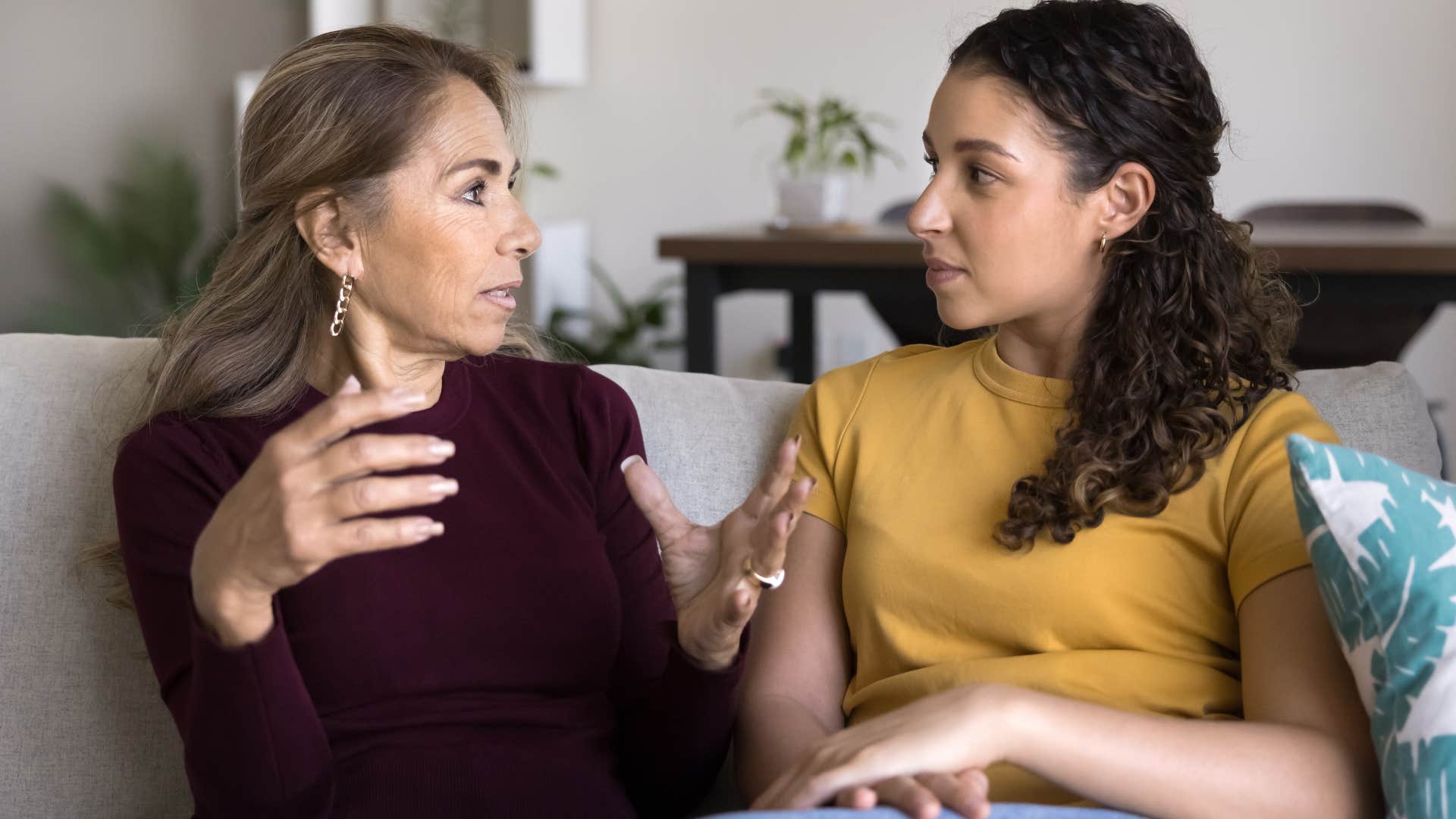 fizkes | Shutterstock
fizkes | Shutterstock
Many adult children feel infantilized around their parents when they're not respected in their adult identities, so it's not surprising that they create emotional and physical distance. When they're at home, they regress to their old, immature behaviors and suppress their concerns to protect the peace, even at the expense of their well-being and relationship health.
That's why phrases like "because I said so" and "you'll understand when you're older" are things good people absolutely hate hearing their parents. They not only feel disrespected, but like their adult autonomy and independence is being invalidated.
2. 'You're doing great, but...'
 fizkes | Shutterstock
fizkes | Shutterstock
While invalidation from parents early in life can often spark adult insecurities, mental health concerns, and an unstable sense of self-identity, according to relationship coach Annie Tanasurgarn, feeling validated as an adult is just as important.
So, if a parent is always saying things like "you're doing great, but..." to critique life choices, give unsolicited advice, or express the things they "wish" they'd do differently to their adult children, disconnection, disappointment, and resentment are inevitable.
That's why this is one of the phrases good people absolutely hate hearing from their parents. They want to feel valued, validated, and celebrated for the choices they made and achievements they accomplished, not for falling in line with their family's expectations or demands for them.
3. 'After everything I've done for you?'
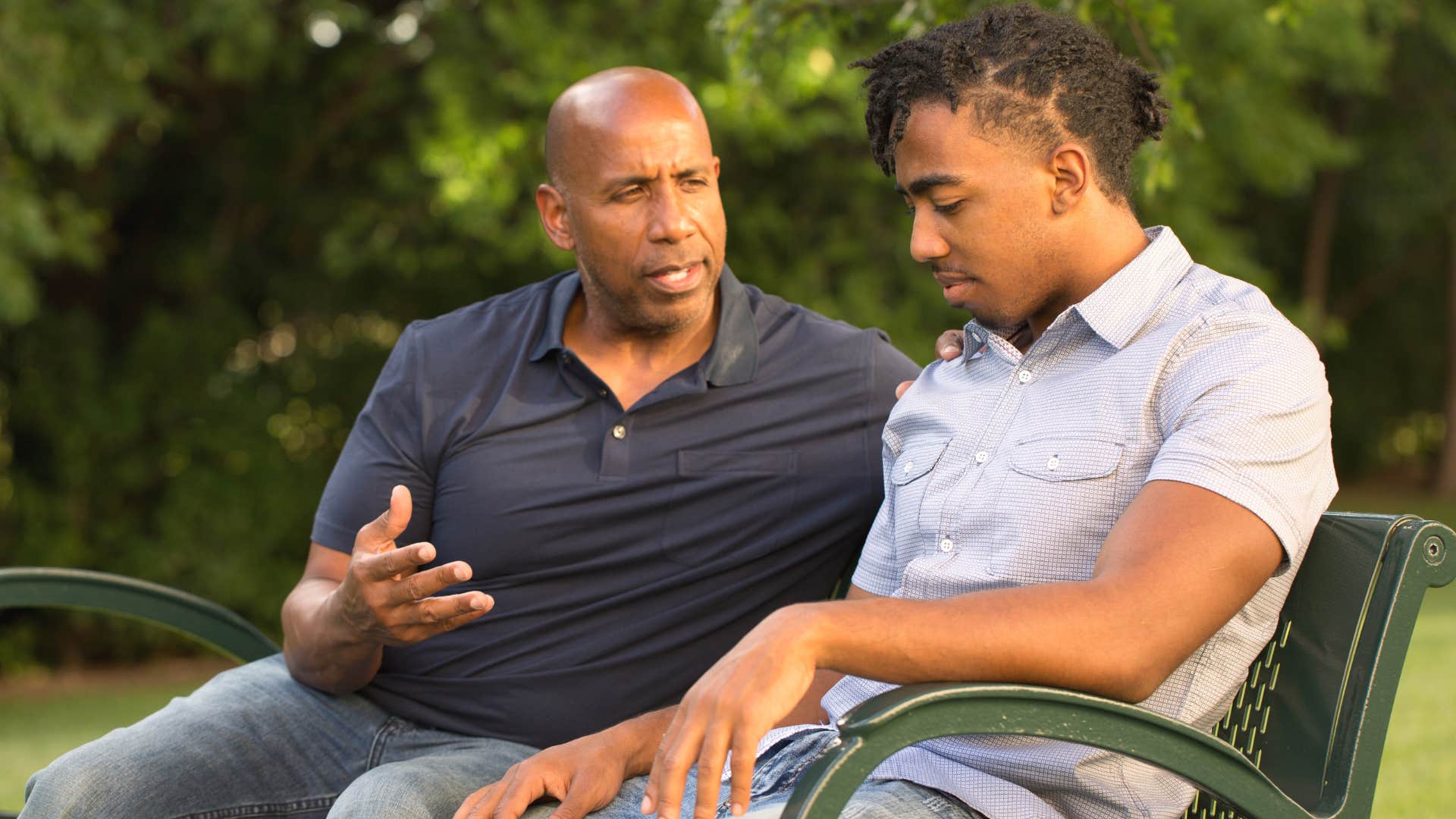 pixelheadphoto digitalskillet | Shutterstock
pixelheadphoto digitalskillet | Shutterstock
From small requests like doing a chore at their house or larger things like taking accountability for someone's hurt feelings, a phrase like "After everything I've done for you?" only makes adult children feel guilty. Instead of being grateful and thoughtful about reflecting on their sacrifices and experiences as parents, they weaponize them to guilt their kids into doing what they want — even if it's entirely subconscious.
Like family therapist Sarah Epstein argues, guilting kids with a phrase like this may have short-term wins — they do what their parents say or come home to visit — but many long-term consequences. Not only do these adult children often grapple with the guilt their parents weaponize, but they also feel emotionally manipulated and resentful.
4. 'We know what's best for you'
 Andrew Angelov | Shutterstock
Andrew Angelov | Shutterstock
Even if it comes from a place of love, "we know what's best for you" is one of the phrases good people absolutely hate hearing from their parents. It feels invalidating when a parent overlooks your wishes for the sake of their own comfort or wishes, especially when it's used in a manipulative, condescending, or coercive way to get what they want.
Unsurprisingly, when parents are overly controlling of their kids' autonomy and independence — both in childhood and later in life — it creates a co-dependent relationship that's toxic for everyone involved. Dealing with the natural disconnect in families is uncomfortable for many parents, but that doesn't give them the right to sabotage their adult kids' independence and pressure them into doing what they want.
5. 'You'll thank me one day'
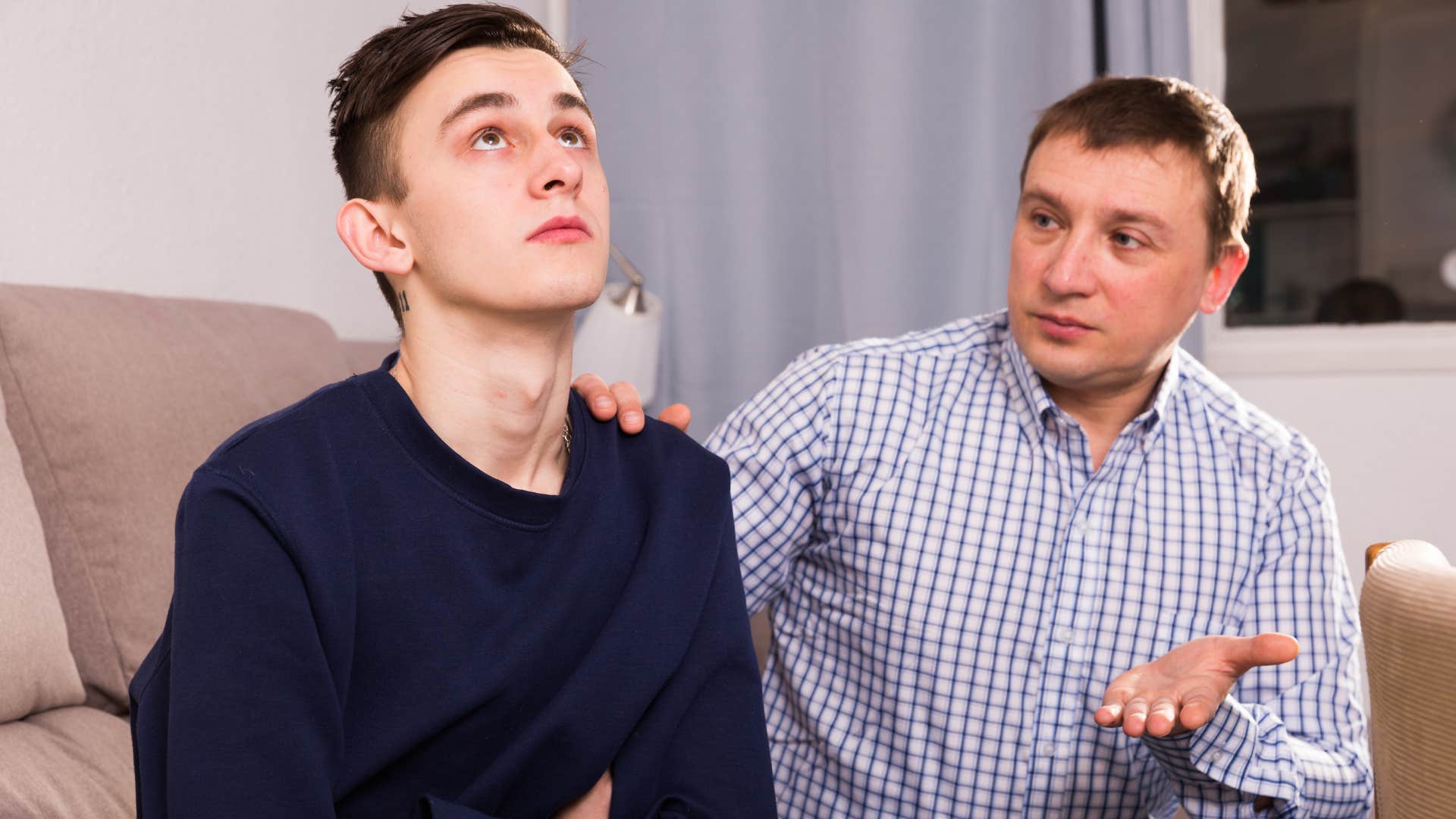 BearFotos | Shutterstock
BearFotos | Shutterstock
Instead of being dedicated to open communication, understanding, and emotional support in the moment, many parents dismiss their adult kids' concerns and emotions — even if they don't realize it — with a phrase like this. Even if it's entirely unintentional, a phrase like "you'll thank me one day" often feels like "I don't care to support and understand you right now" to an adult child.
Like psychologist Hal Shorey explains, not every adult child who feels invalidated is blameless, just like not every parent who invalidates their kids does it on purpose. However, with the right kind of commitment and grace in a parent-child relationship, everyone can feel more supported, without relying on passive one-liners like this.
6. 'What will your father think?'
 Aloha Hawaii | Shutterstock
Aloha Hawaii | Shutterstock
Phrases like this one — or "What will your father think?" or "What will people say?" — from parents often pressure adult kids to seek external validation and acceptance, even at the expense of their own well-being, confidence, and stress levels.
That's why they are some of the phrases good people absolutely hate hearing from their parents. They want to be loved, supported, and celebrated for their decisions, identities, and accomplishments without their parents comparing them to everyone else's.
7. 'You'll always be my baby'
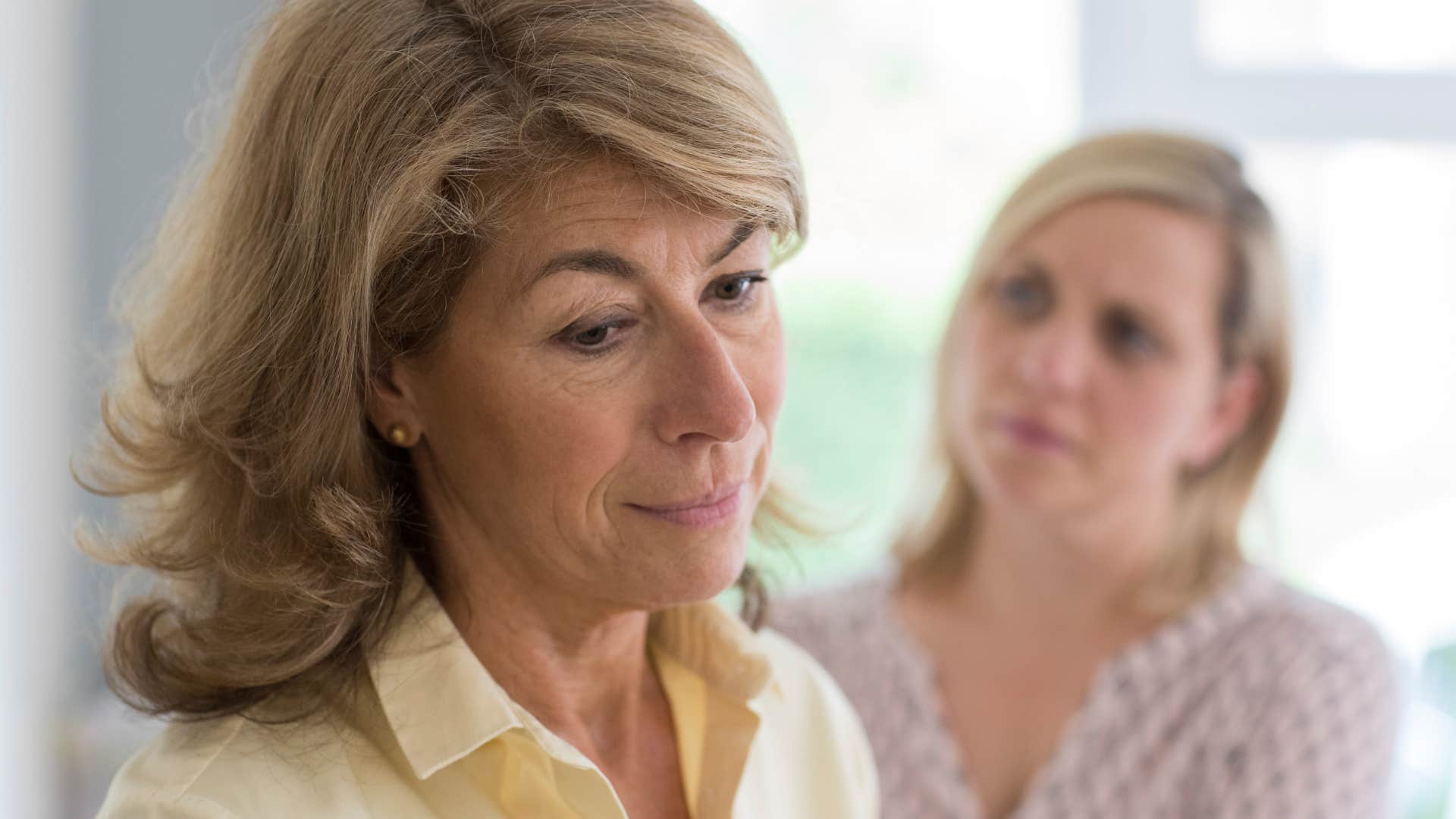 Daisy Daisy | Shutterstock
Daisy Daisy | Shutterstock
Even though it's heartfelt and often loving in certain situations, a phrase like "you'll always be my baby" should never be a parental excuse for using dismissive language or disrespecting boundaries. That's why it's one of the phrases good people absolutely hate hearing from their parents.
They can understand that it's often sarcastic or wholesome, but that doesn't take away from the invalidation they feel regarding their personal independence and autonomy.
8. 'You should be grateful'
 wavebreakmedia | Shutterstock
wavebreakmedia | Shutterstock
The only thing a phrase like "you should be grateful" does for an adult child is to weaponize their insecurities and suggest that their vulnerability is an invalidation of gratitude. Just because an adult child expresses a concern, talks about childhood trauma, or sets a boundary doesn't mean they're not grateful — it just means they're empowered enough to protect themselves and work toward growth with their families in mind.
In fact, healthy parents teach their kids to set boundaries openly and celebrate them for being emotionally vulnerable, even at home. Without this kind of openness or vulnerability, everyone ends up feeling less valued and heard.
9. 'You've always been like that'
 fizkes | Shutterstock
fizkes | Shutterstock
Many adult children feel stuck in toxic patterns of behavior or pressured by frustrating, limiting beliefs because they feel rooted in their identity. Whether it's social anxiety or struggling to commit to partners, expressing a struggle and having it be met with "well, you've always been like that" from a parent is not only frustrating but also largely dismissive and isolating.
Good people want to change and work on their "flaws," but when they're constantly reminded of how central they are to their personal identity at home or around parents, it can spark tension in their family dynamic.
10. 'You don't love me'
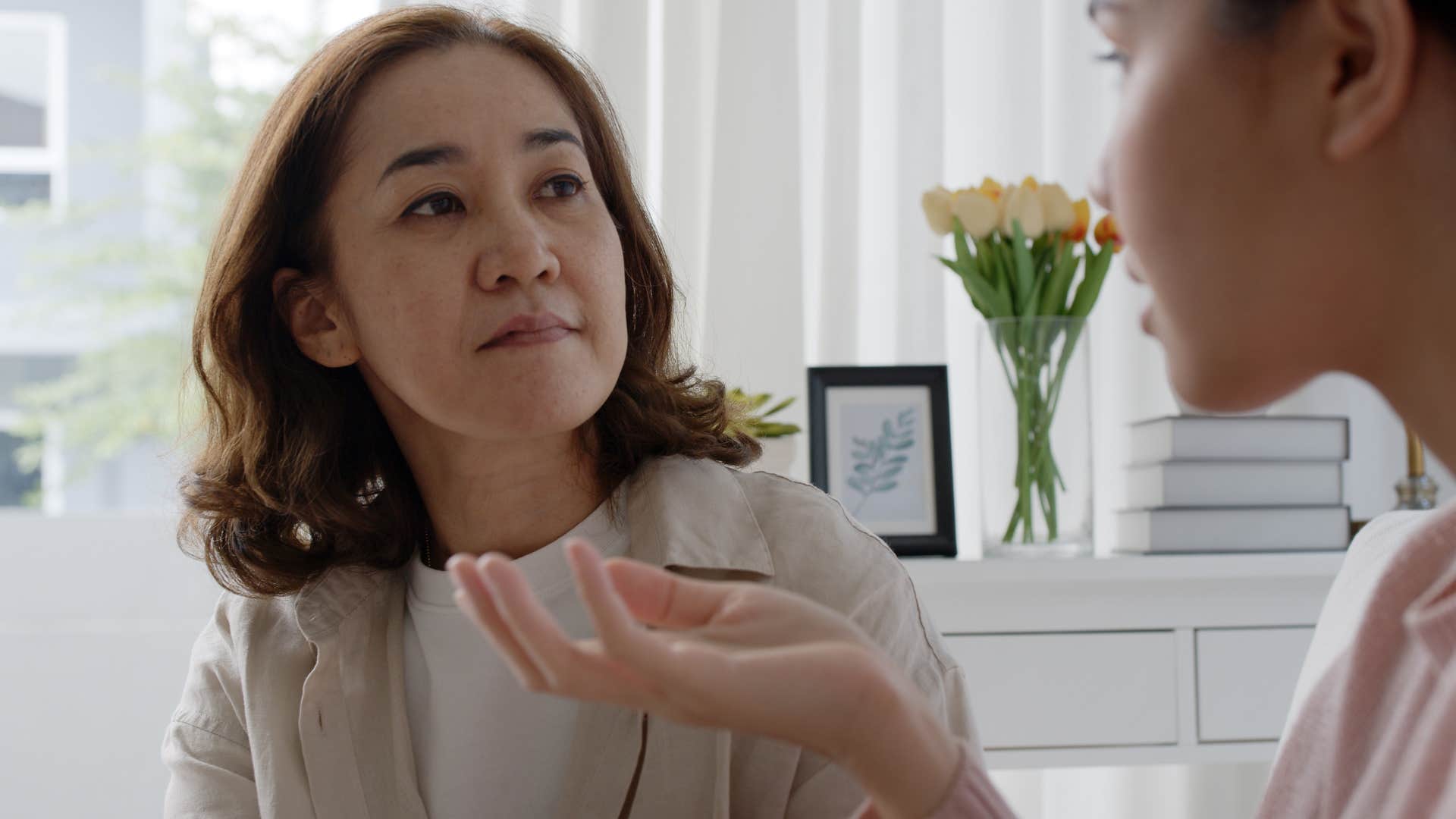 Chay_Tee | Shutterstock
Chay_Tee | Shutterstock
When parents try to weaponize their children's insecurities or fears, like being misunderstood or isolated from their family, with a phrase like "you don't love me," it can have severe consequences. While it might help parents to get what they want in the moment, whether it's more time with their kids or ensuring they take unsolicited advice, it truly only roots resentment at the heart of their family dynamic.
Luckily, most of the phrases good people absolutely hate hearing from their parents are less reflective of their own characters and more telling about their parents' insecurities and fears.
11. 'You don't know how great you have it'
 Drazen Zigic | Shutterstock
Drazen Zigic | Shutterstock
Good people often want to deepen their bonds with family and find support with their parents at home, but phrases like this can lead to more isolation than connection. If an adult child comes to their parents with a concern, asks for advice, or expresses a complex emotion, but they're met with "you don't know how great you have it," they're pressured into suppression at the expense of their general well-being.
So, if you're a parent of an adult child, try to come into conversations with your kids in a more open, supportive, and loving way. If they want your advice or input, they'll ask for it — otherwise, they're probably just looking for support and emotional safety.
Zayda Slabbekoorn is a senior editorial strategist with a bachelor's degree in social relations & policy and gender studies who focuses on psychology, relationships, self-help, and human interest stories.

